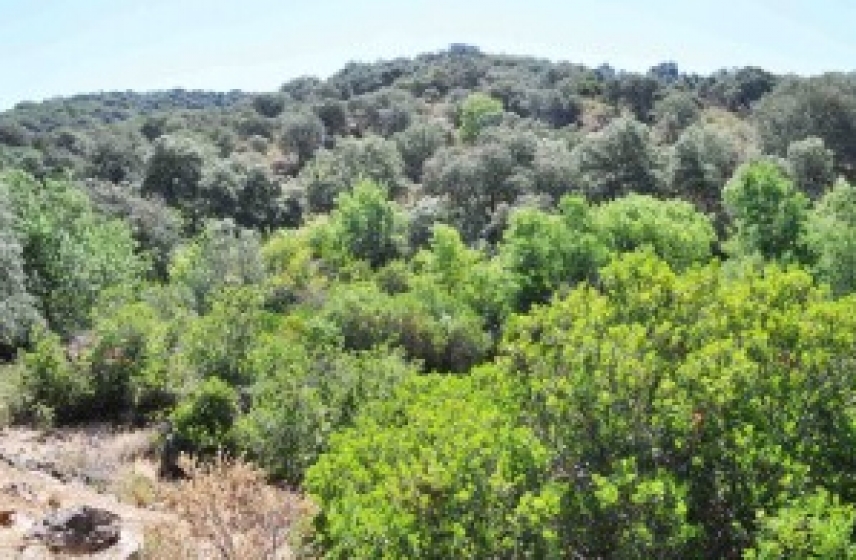
Woody communities
The University of Córdoba has collaborated with IRNAS-CSIC in a local scale (Sierra Morena Mountains) study, in order to analyse the functional trait variation on nine woody plant communities along a gradient of water and nutrient availability. For this approach, several functional traits at aboveground (plant size, specific leaf area, leaf and stem dry matter content, etc.) and belowground (root dry matter content and specific root length) level have been taken on 38 Mediterranean woody species. The main objectives were: i) identify which environmental soil drivers (mainly nutrient and water) were associated with functional trait variation at the community level and ii) discern if trait variation was the results of changes on species composition (turnover), changes on species abundance or such a consequence of intraspecific variability. For this last question we have developed a new formula (based on Leps et al. 2011 equation), which allows to disentangling the causes of these processes between communities.
Our results showed that the functional trait variation on the community was highly determined by soil water availability. In contrast, soil nutrient availability did not have any significant role. In addition, changes on community structure were the result of changes in species occurrence. These results highlighted something well known, as the important role of water availability on Mediterranean ecosystems, however this study also highlights that soil water variations at local scale may promote large changes in the community structure. These changes are not only due as a result of species replacement on the community, but also as changes on the functional composition of them. These results are especially relevant on the global change context, which predict an increase of the aridity, being able to cause a strong alteration in species composition, especially on moist sites, promoting the disappearance of species and the alteration of the ecosystem processes associated with them.
This work, which is part of the PhD of Enrique G. de la Riva, has been published in the journal Oikos.
de la Riva, E. G., Pérez-Ramos, I. M., Tosto, A., Navarro-Fernández, C. M., Olmo, M., Marañón, T., & Villar, R. (2015). Disentangling the relative importance of species occurrence, abundance and intraspecific variability in community assembly: a trait-based approach at the whole-plant level in Mediterranean forests. Oikos. DOI: 10.1111/oik.01875.


